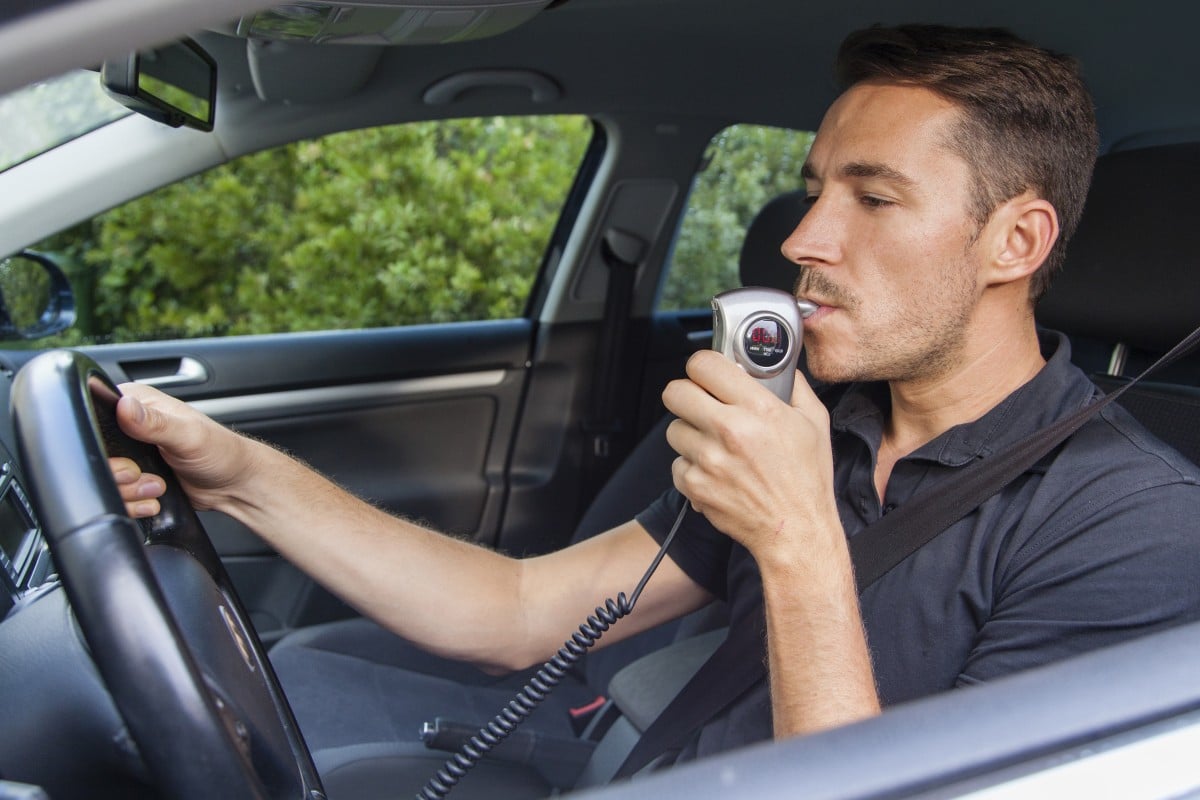If you’ve been arrested for driving while intoxicated, the consequences hit fast—and often before your case even reaches court. In many states, the Department of Motor Vehicles (DMV) can suspend your license immediately after a DWI arrest. The good news? You don’t have to accept it without a fight. This is where knowing how to appeal a DMV DWI suspension becomes a game changer. The earlier you act, the more control you’ll have over what happens next. Even a small delay can trigger an automatic suspension that’s harder to undo later.
This article unpacks everything you need to know about appealing a DWI suspension, especially when dealing with your local DMV. From critical deadlines to hearing strategies and real-life case examples, we’ll guide you through the process in a way that’s accessible, practical, and—most importantly—actionable. If your freedom to drive is at stake, this knowledge gives you the edge you need to respond with confidence. It’s not just about fighting back—it’s about knowing how to fight smart.

What Triggers a DMV DWI Suspension?
Administrative Action vs. Criminal Court
First things first: a DMV DWI suspension is separate from what happens in criminal court. That’s a major point of confusion for people unfamiliar with the system. Think of it as a parallel legal process focused solely on your driving privileges.
Here’s how it usually works:
- You get arrested for suspected DWI
- The officer takes your license on the spot
- You’re issued a temporary driving permit
- The DMV automatically begins the process to suspend your license
This administrative suspension doesn’t wait for a conviction. In fact, even if you’re found not guilty in court, you could still lose your license through the DMV—unless you act fast. That’s why time is not just important—it’s everything.
Understanding how to appeal a DMV DWI suspension is key because the system is designed to move quickly and favors the state unless you intervene. Without taking action, you could lose your license without ever stepping foot in a courtroom.
Real-Life Story: Melissa’s 10-Day Window
Melissa, a 29-year-old grad student in Austin, was pulled over late one night after a birthday dinner. She blew a 0.09 on the breathalyzer—just over the legal limit.
The next morning, she learned her driver’s license would be suspended in 10 days unless she requested a hearing with the DMV. Like many first-time offenders, she had no idea such a hearing existed.
Luckily, her friend connected her with a local DWI attorney who filed the hearing request just in time. That move bought her months of driving privileges and helped her win her appeal due to inconsistencies in the police report.
Melissa’s story highlights how critical it is to know how to appeal a DMV DWI suspension—and to act quickly.
Step One: Request a DMV Hearing Immediately
The Clock Is Ticking
In most states, you have 7 to 15 days from the date of your DWI arrest to request a DMV hearing. Miss this deadline, and your license is suspended automatically—no questions asked.
Here’s what you need to do:
- Check your temporary license or notice of suspension—it will state the deadline
- Contact your local DMV office—preferably in writing (email, fax, or certified mail)
- Request a formal administrative hearing
- Ask for a stay of suspension—this lets you keep driving until the hearing is resolved

This hearing request is your first and most important step in learning how to appeal a DMV DWI suspension.
What Happens at the DMV Hearing?
It’s Not Court—but It’s Still Serious
DMV hearings are administrative, not criminal, but don’t be fooled—they are legal proceedings, and the outcome matters.
Typically, the hearing officer (not a judge) will consider:
- Whether the officer had reasonable suspicion to stop you
- Whether there was probable cause to arrest you for DWI
- Whether you refused or failed a chemical test
- Whether proper procedures were followed during the arrest and testing
Your attorney can present evidence, question the officer (if they appear), and challenge the DMV’s case. These hearings often take place by phone, but some may be in person.
Even though it’s a different setting, knowing how to appeal a DMV DWI suspension means preparing for this hearing like it’s trial day.
Can You Win a DMV DWI Suspension Appeal?
Yes—But You Need the Right Approach
Many people think DMV hearings are rubber-stamp procedures. While it’s true the deck is often stacked against the driver, winning is absolutely possible, especially if:
- The officer doesn’t show up
- Paperwork is incomplete or incorrect
- Testing procedures weren’t followed
- You provide credible evidence of misconduct or medical issues
The burden of proof is technically on the DMV, but in practice, you have to actively poke holes in their evidence. That’s why hiring an experienced DWI attorney is often your best bet.
Understanding how to appeal a DMV DWI suspension is really about spotting procedural errors and forcing the system to play fair.
Real-Life Example: Tony Beats the Breath Test
Tony, a 37-year-old truck driver, was pulled over for drifting across a lane in Dallas. He submitted to a breathalyzer and blew a 0.10.
His attorney argued at the DMV hearing that the officer didn’t follow the mandatory 15-minute observation period before administering the test. Surveillance footage from a nearby store confirmed the officer barely observed Tony for 2 minutes before testing.
The hearing officer agreed that this violated procedure, and Tony’s license suspension was overturned.
Tony kept his commercial license—and his job. This is why learning how to appeal a DMV DWI suspension can be a career-saving move.
What If You Lose the Hearing?
Don’t Panic—You Have Options
If the DMV hearing doesn’t go your way, it’s not the end of the road. You still have a few paths forward:
- Appeal the decision in civil court
- Request a restricted license that allows you to drive to work, school, or medical appointments
- File for a review or reconsideration if new evidence arises
- Install an ignition interlock deviceto qualify for limited driving privileges

The key is not to give up. A suspension isn’t permanent unless you accept it as such. Part of how to appeal a DMV DWI suspension includes understanding what comes after a denial.
How a DUI Attorney Can Make All the Difference
More Than Just Legal Knowledge
DWI attorneys don’t just file paperwork—they know the local DMV staff, the hearing officers, and the loopholes in the system. They can:
- File a thorough hearing request
- Gather medical, video, or expert evidence
- Cross-examine the arresting officer
- Draft compelling legal arguments
- Negotiate for lesser penalties or reinstatement terms
If you’re serious about appealing a DWI suspension, hiring a lawyer isn’t a luxury—it’s a strategy.
Common Mistakes That Hurt Your Appeal
Avoid These at All Costs
Learning how to appeal a DMV DWI suspension also means understanding what not to do. Here are the most frequent mistakes people make:
- Missing the hearing deadline
- Failing to request a stay of suspension
- Assuming the hearing is informal and not preparing
- Going in without representation
- Not checking the officer’s report for errors
Each of these missteps can result in automatic suspension, even when you might have had a strong case.
What About Refusing the Breath Test?
It Gets Tricky—But You Still Have Rights
Refusing a chemical test (breath, blood, or urine) can trigger automatic, harsher penalties in many states. But that doesn’t mean your case is hopeless.
You can still argue:
- The officer didn’t clearly explain the consequences of refusal
- The test request wasn’t lawful (no probable cause)
- You were unable to provide a sample due to a medical issue
Your rights don’t vanish just because you said no. You just need to build a stronger case when appealing.
DMV vs. Criminal Court: Know the Difference
Two Tracks, Two Battles
One of the most important things to know about how to appeal a DMV DWI suspension is that your criminal court case and your DMV hearing are entirely separate. Winning one doesn’t guarantee victory in the other. Many people mistakenly think a court win means the DMV case disappears—it doesn’t.
- DMV hearing: Administrative. Focused on license and procedure.
- Criminal trial: Determines guilt or innocence and penalties like fines or jail.

Each has its own timeline, evidence rules, and consequences. You need to approach them independently but strategically aligned. A good defense strategy recognizes that both arenas matter and prepares for each accordingly.
Final Thoughts: Appealing a DWI Suspension Is Worth the Effort
Appealing a DWI suspension isn’t easy—but it’s far from impossible. By understanding the system, acting quickly, and building a strong case, you can keep your license, protect your job, and maintain your independence while the rest of your case plays out. This is your opportunity to push back against a system that often feels one-sided.
The key takeaway? Know how to appeal a DMV DWI suspension before the clock runs out. The system moves fast—but with the right moves, you can stay one step ahead. The sooner you take control, the better your odds of getting back on the road legally and confidently.
Don’t let aDWI charge derail your life. Take control early, seek experienced help, and remember: one mistake doesn’t have to define your future.

